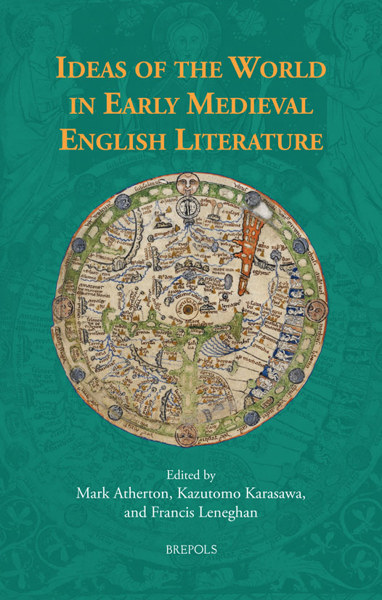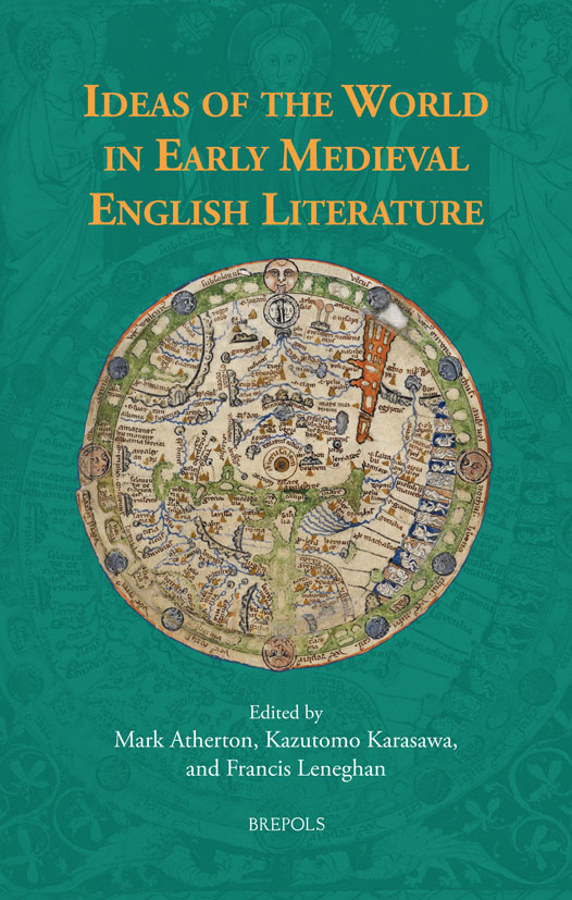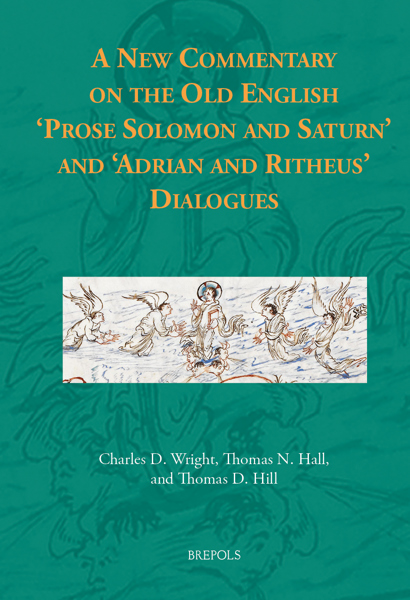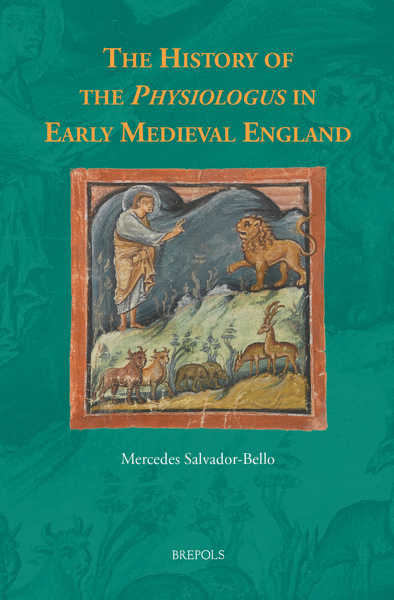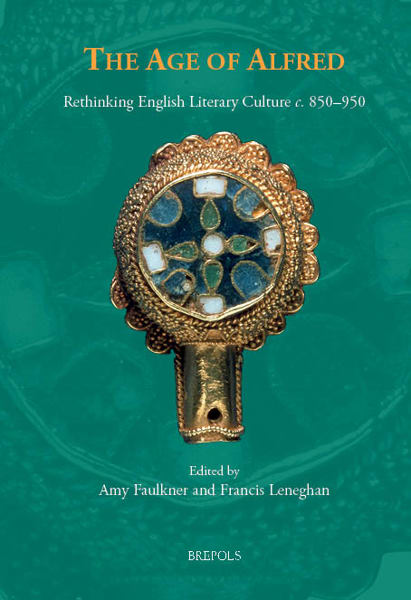
Ideas of the World in Early Medieval English Literature
Mark Atherton, Kazutomo Karasawa, Francis Leneghan (eds)
- Pages: 442 p.
- Size:156 x 234 mm
- Illustrations:17 b/w, 7 col.
- Language(s):English
- Publication Year:2022
- € 115,00 EXCL. VAT RETAIL PRICE
- ISBN: 978-2-503-59957-1
- Hardback
- Available
- € 115,00 EXCL. VAT RETAIL PRICE
- ISBN: 978-2-503-59958-8
- E-book
- Available
The essays in this volume investigate how the Anglo-Saxons perceived the outside world, how they positioned themselves in it, and how they interacted with it.
Awarded with 2023 Best Book Prize of the International Society for the Study of Early Medieval England (ISSEME)
"An inspiring collection with fifteen contributors, ranging from new voices to experienced scholars, who investigate how the inhabitants of early medieval England perceived the outside world and how they positioned themselves in relation to other peoples and cultures. A timely and well-construed collection that touches on a variety of topical subjects (inclusivity, exclusivity, connectivity, apartness, multiculturalism, insularity), which is sure to be a starting point for many research projects in the future."
Jury - 2023 ISSEME Best Book Prize
“In sum the contributions to Ideas of the World offer a rich, thought-provoking picture of aspects of pre-Conquest English literature. (…) At its most exciting, Ideas of the World in Early Medieval English Literature takes its readers into a conversation heading in new directions, and in some instances just getting started.” (Alfred Hiatt, in The Medieval Review, 07/02/2024)
“The volume has the most intensive and helpful level of cross-referencing that this reviewer has come across. (…) The volume will be a goldmine for university teachers of Old English literature, (…) Given this versatility, the volume will be an important landmark in the history of our subject, for researchers, teachers and students of early medieval literary globality alike.” (Christine Rauer, in English Studies, 2024)
“Ideas of the World in Early Medieval English Literature was awarded the ‘Best Book’ prize at the biennial conference of the International Society for the Study of Early Medieval England (2023) (…) It follows that this collection is capable of being used in a variety of ways. At its narrowest, this volume adds to existing scholarship on an extensive range of individual Old English sources. More generally, the collection as a whole shows the value of reading a text through different sources and using other theories. It is exciting to see theories from outside traditional literary/historical scholarship being used to re-examine and broaden our understanding of Old English texts.” (Georgina Pitt, in Parergon, 41/1, 2024, p. 303-304)
Mark Atherton is Senior Lecturer in English at Regent’s Park College, Oxford.
Kazutomo Karasawa is Professor of English Philology at Rikkyo University.
Francis Leneghan is Professor of Old English at the University of Oxford, and a Fellow of St Cross College.
Across three thematically-linked sections, this volume charts the development of competing geographical, national, and imperial identities and communities in early medieval England. Literary works in Old English and Latin are considered alongside theological and historical texts from a range of disciplinary perspectives. Accounts of travel, foreign contacts, conversion, migration, landscape, nation, empire, and conquest are set within the continual flow of people and ideas from East to West, from continent to island and back, across the period. The fifteen contributors investigate how the early medieval English positioned themselves spatially and temporally in relation to their insular neighbours and other peoples and cultures. Several chapters explore the impact of Greek and Latin learning on Old English literature, while others extend the discussion beyond the parameters of Europe to consider connections with Asia and the Far East. Together these essays reflect ideas of inclusivity and exclusivity, connectivity and apartness, multiculturalism and insularity that shaped pre-Conquest England.
Acknowledgments, List of Figures, List of Abbreviations
Introduction: Foreign Contacts, Landscapes, and Empire-Building — MARK ATHERTON, KAZUTOMO KARASAWA, AND FRANCIS LENEGHAN
Here, There, and Everywhere
Alfred and the East — DANIEL ANLEZARK
The Wanderings of Saturn: Psychogeography, Psalms, and Solomon and Saturn — RACHEL BURNS
Otherwheres in the Prose Texts of the Nowell Codex — S. C. THOMSON
Rome away from Rome: India, Rome, and England in Ælfric’s ‘Life of St Thomas’ — LUISA OSTACCHINI
Christ Embracing the World: Ælfric’s Description of the Crucifixion in ‘De Passione Domini’ — KAZUTOMO KARASAWA
Babel and Beyond: Thinking Through Migration in Genesis A — DANIEL THOMAS
The Sound-World of Early Medieval England: A Case Study of the Exeter Book Storm Riddle — BRITTON BROOKS
The Place of Stillness: Greek Patristic Thought in Cynewulf’s Juliana — ELENI PONIRAKIS
St Rumwold in the Borderland — HANNAH BAILEY
The World of Ealdorman Byrhtnoth: A Landscape Biography — MARK ATHERTON
Mapping Empire: Two World Maps in Early Medieval England — HELEN APPLETON
Good Neighbours? Representations of Britons, Welsh, Picts, and Scots in Pre-Conquest English Sources — CAITLIN ELLIS
From (North-)East to West: Geographical Identities and Political Communities in the Ninth- to Eleventh-Century Anglo-Scandinavian World — RYAN LAVELLE
Kings, People, and Lands: The Rhetoric of The Battle of Brunanburh—PAUL CAVILL
End of Empire? Reading The Death of Edward in MS Cotton Tiberius B I — FRANCIS LENEGHAN
Index
